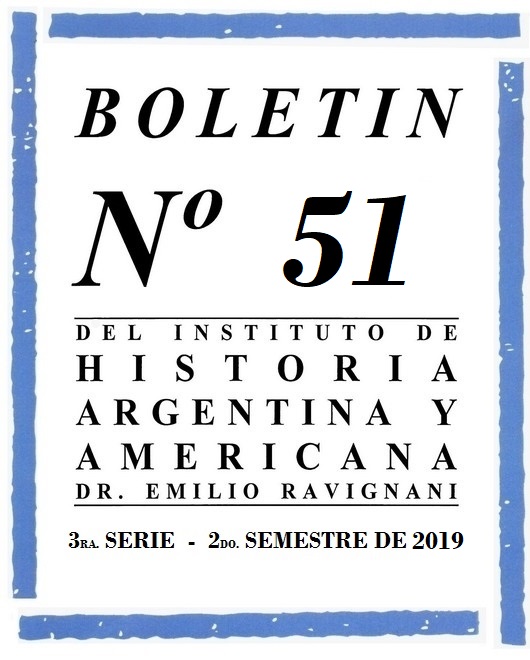The Argentinean Constitutional Clubs in the Pacific Coast (1850-1855): Exile and Return in the “Floating Province”
Abstract
This article analyzes the role of the rival Argentine Constitutional Clubs in the process of constitutional organization of the republic after the fall of Juan Manuel de Rosas, in 1852. The clubs, one directed by Juan Bautista Alberdi and the other by Domingo Faustino Sarmiento, were formed in a context of exile political mobilization, and now adapted to the conflict between Buenos Aires and the Argentine Confederation in the 1850s. In this conflict, the clubs played a central role in the constitutional debate, the diffusion of propaganda (in particular Alberdi’s Bases) and the diplomatic strategies of Buenos Aires and Paraná to gain the adhesion of the provinces and the diplomatic recognition of neighboring and European countries. This shows the transnational forces at the origin of national organization in addition to the historical background of exile as a political and social practice in Argentina.Downloads
The copyright is transferred to the Boletín, but the authors may retrieve them and reproduce their work in other media or formats by means of a written request to the Editorial Committee. In such cases, the Boletín will be cited as the first publication of the work.
The works are licensed under a Creative Commons Attribution-NonCommercial 4.0 International License, which allows others to share the work with an acknowledgment of their authorship and initial publication in this journal.
Also, by written request to the Editorial Committee of the Boletín, the authors may separately establish additional agreements for the non-exclusive distribution of the version of the work published in this journal (for example, placing it in an institutional repository or publishing it in a book), with an acknowledgement of its initial publication here. No commercial uses are allowed.



















